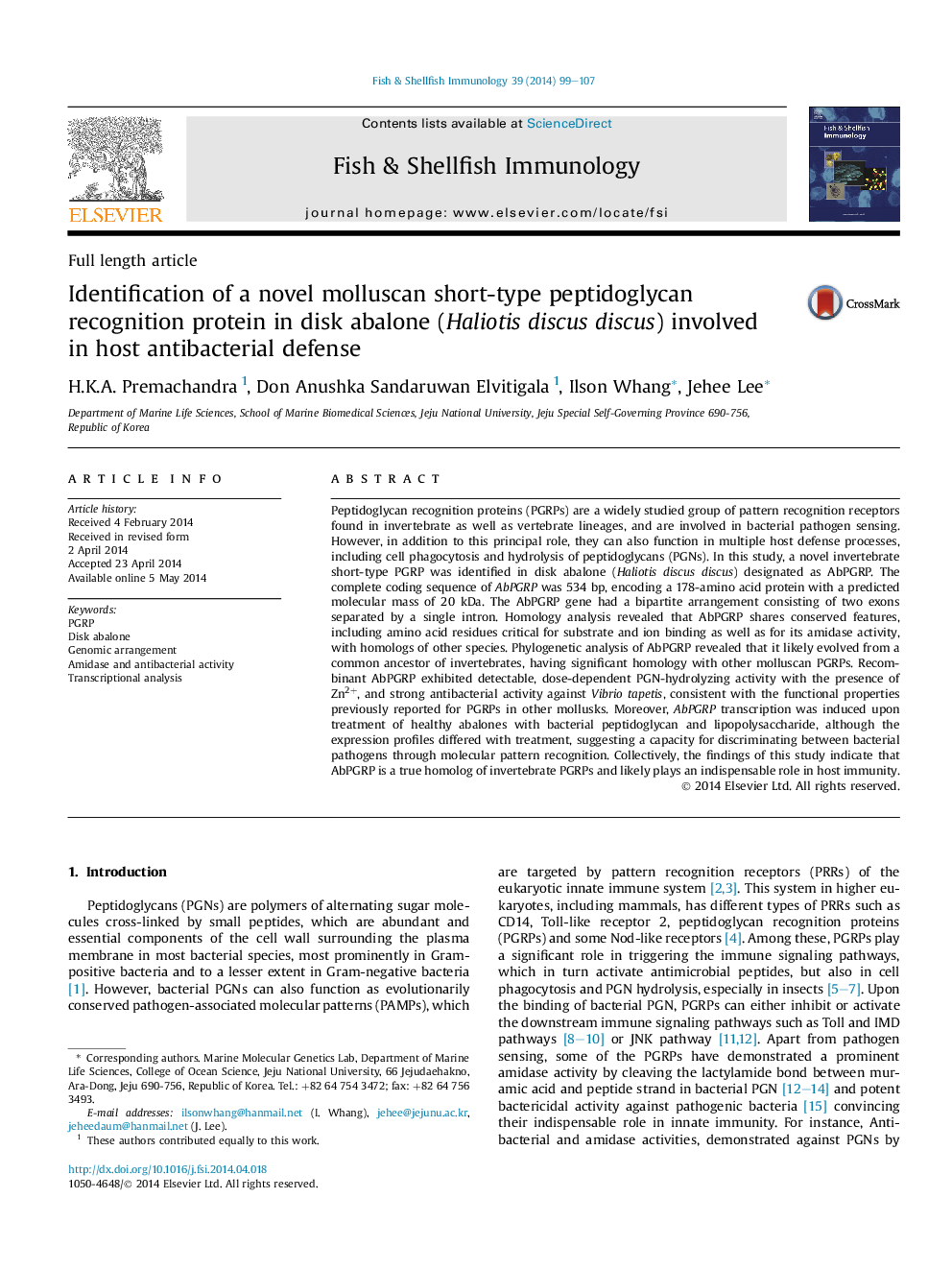| Article ID | Journal | Published Year | Pages | File Type |
|---|---|---|---|---|
| 2431406 | Fish & Shellfish Immunology | 2014 | 9 Pages |
•Invertebrate homolog of short type PGRP (AbPGRP) was identified from disk abalone.•Amino acid sequence of AbPGRP resembled typical characteristic features of PGRPs.•Recombinant AbPGRP demonstrated prominent bactericidal and amidase activity.•AbPGRP transcription was ubiquitously distributed in tissues; abundantly in hemocytes.•Basal transcription of AbPGRP was modulated in gill tissue, upon immune stimulation.
Peptidoglycan recognition proteins (PGRPs) are a widely studied group of pattern recognition receptors found in invertebrate as well as vertebrate lineages, and are involved in bacterial pathogen sensing. However, in addition to this principal role, they can also function in multiple host defense processes, including cell phagocytosis and hydrolysis of peptidoglycans (PGNs). In this study, a novel invertebrate short-type PGRP was identified in disk abalone (Haliotis discus discus) designated as AbPGRP. The complete coding sequence of AbPGRP was 534 bp, encoding a 178-amino acid protein with a predicted molecular mass of 20 kDa. The AbPGRP gene had a bipartite arrangement consisting of two exons separated by a single intron. Homology analysis revealed that AbPGRP shares conserved features, including amino acid residues critical for substrate and ion binding as well as for its amidase activity, with homologs of other species. Phylogenetic analysis of AbPGRP revealed that it likely evolved from a common ancestor of invertebrates, having significant homology with other molluscan PGRPs. Recombinant AbPGRP exhibited detectable, dose-dependent PGN-hydrolyzing activity with the presence of Zn2+, and strong antibacterial activity against Vibrio tapetis, consistent with the functional properties previously reported for PGRPs in other mollusks. Moreover, AbPGRP transcription was induced upon treatment of healthy abalones with bacterial peptidoglycan and lipopolysaccharide, although the expression profiles differed with treatment, suggesting a capacity for discriminating between bacterial pathogens through molecular pattern recognition. Collectively, the findings of this study indicate that AbPGRP is a true homolog of invertebrate PGRPs and likely plays an indispensable role in host immunity.
